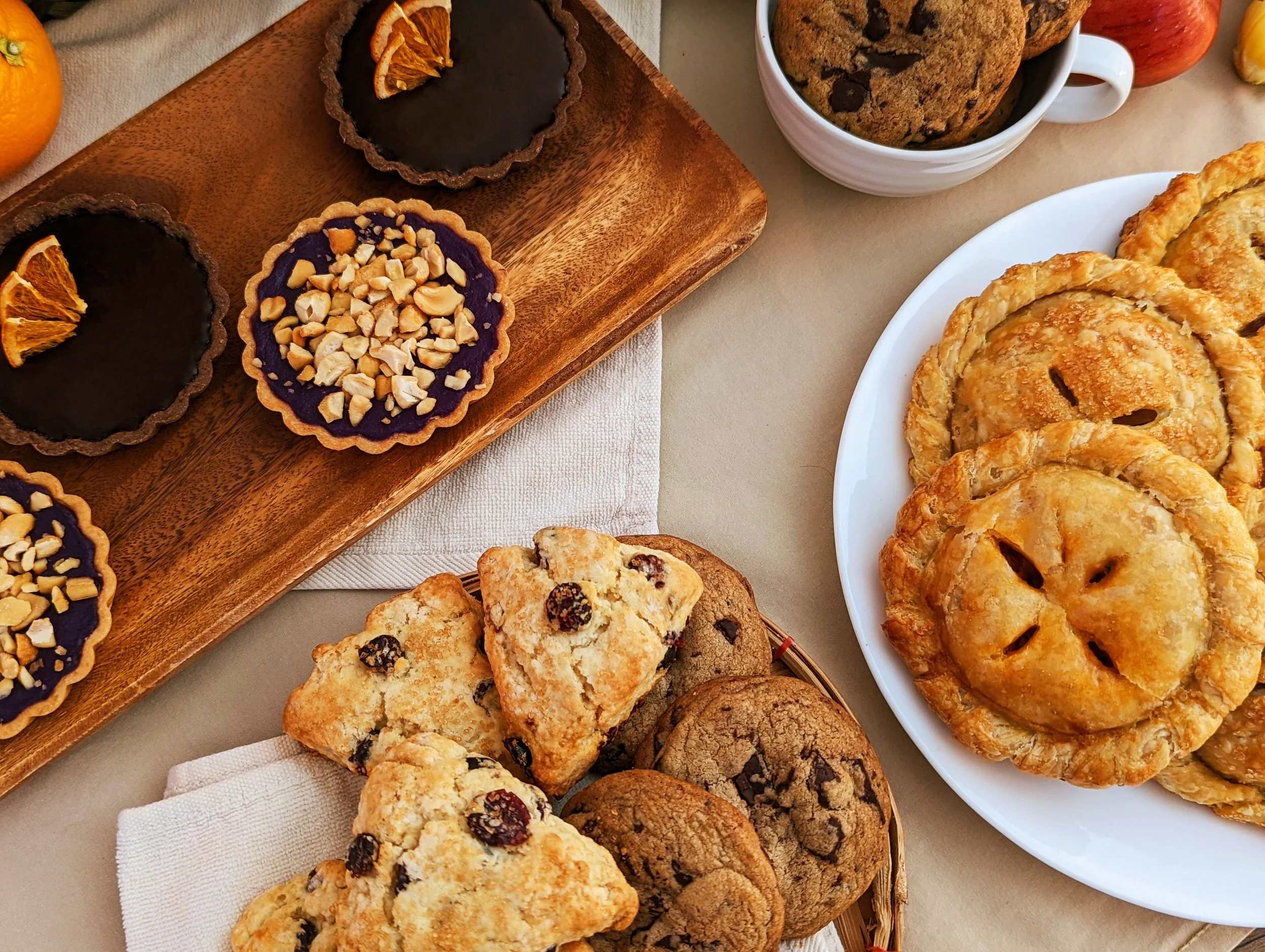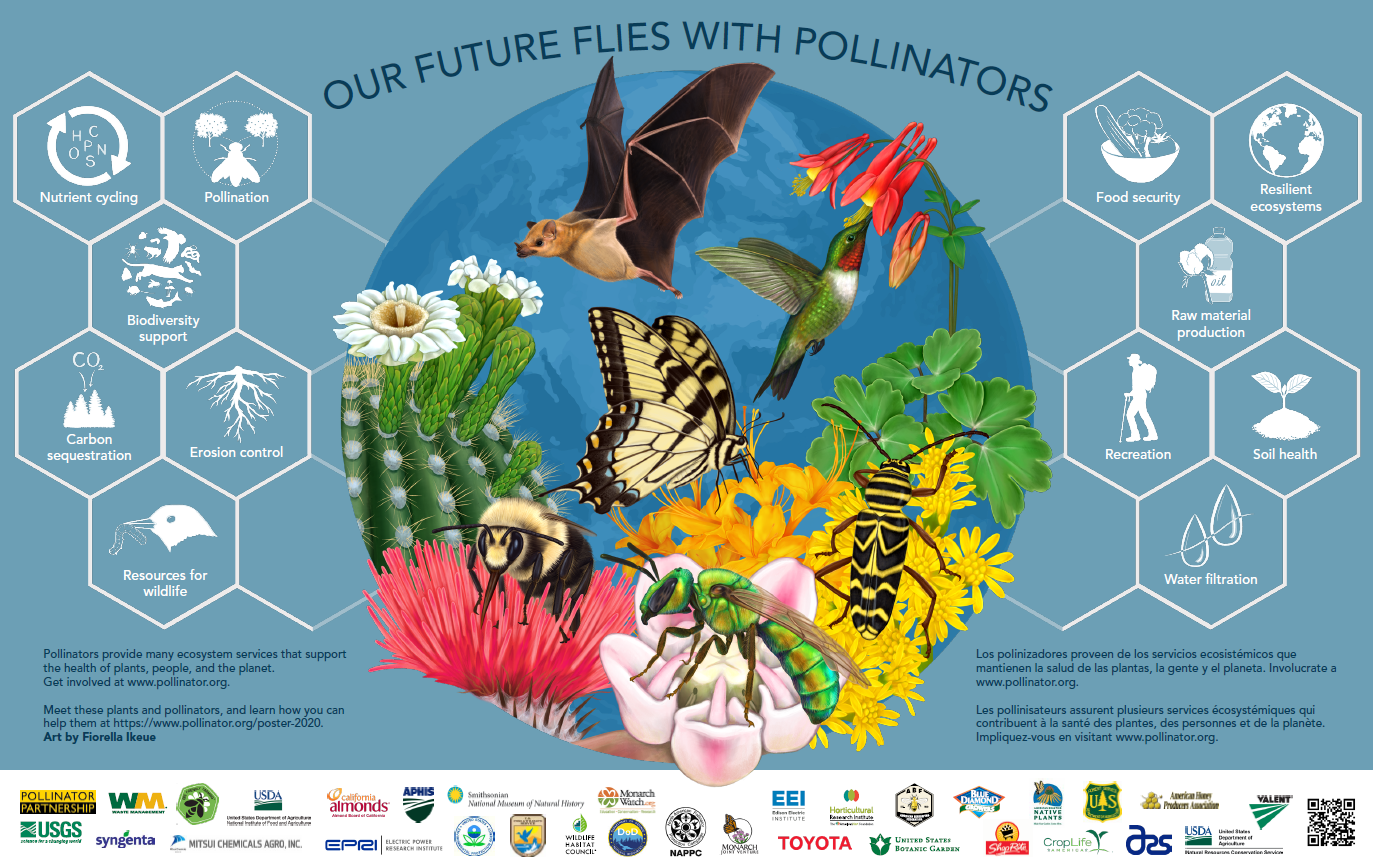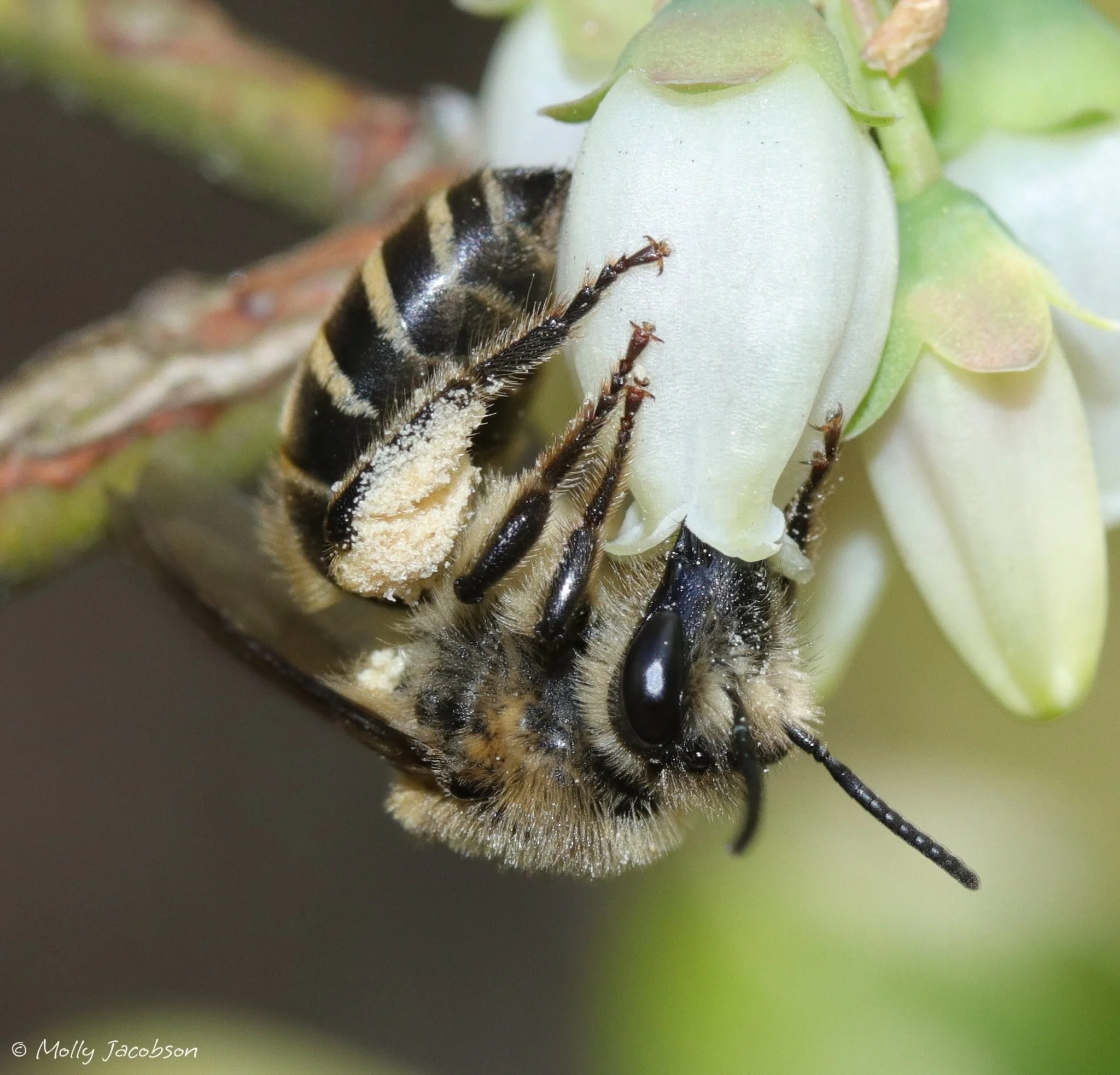
about us
Pollen Basket aims to explore and foster the relationships between people and pollinators through food. We make sweets and treats that celebrate the role that pollinators play in bringing us the food we eat by highlighting ingredients that are dependent on or benefit from pollinators. Food can be an incredible connector between people and cultures, but at Pollen Basket, we also see it connecting us to other living beings that we share the planet with. We hope to spark your interest and thoughtfulness about the interactions and relationships in the world around you.
our mission
Pollinators play an essential role in our ecosystems. Pollination occurs when a pollen grain from the anther (male part) of a flower transfers to the stigma (female part). This is what leads to the production of seeds, fruits, and the next generation of plants. Sometimes a plant can pollinate itself on its own while other times it needs the help of wind, water, or animals (a.k.a. pollinators). Pollinators include birds, bats, flies, wasps, butterflies, moths, beetles, small mammals, and of course, bees, of which there are over 20,000 known species! We think that pollinators are fascinating to learn about and can be a great introduction to the complex and beautiful relationships that make up our world. Pollinators are incredibly diverse and allow us to not only enjoy delicious foods but also maintain and support the health of plants, people, the land, and the planet that we exist on. However, it’s important to note that their value exists even beyond the ways that they benefit us. The food we make at Pollen Basket is a way for us to share our love and appreciation for pollinators with others.
why pollinators?
what do we do to support pollinators?
Despite their importance, unfortunately many species of pollinators face threats to their populations, which could lead to even greater effects on our environment as a whole. The main factor in their population decline is the loss of habitat and food resources. Other contributors also include pollution, disease, misuse of pesticides, and climate change. Additionally, there is often a lack of research on how pollinators are affected by these factors and how to best address them. So what can be done to support pollinators? The best thing any individual can do—whether you have access to a small balcony, a porch, a backyard, or acres of land—is to create habitat that provides food and nesting for pollinators, especially using plants native to your area. Visit our Resources page for more helpful information!
At Pollen Basket, we create and foster what habitat we can with the spaces we have access to, and we are working to expand our reach to spaces in our local community. We work to make information about pollinators and native habitat creation more approachable and accessible through our food and online presence. We also strive to source as many of our ingredients as we can from vendors whose land and labor management practices align with our values. While we are far from perfect, these are aspects of our mission that we are constantly improving upon. Lastly, we plan to donate a portion of our profits to organizations that work in conservation, land stewardship, environmental justice, and food sovereignty. Because we just recently relaunched this year, the list of organizations and percentage of profit is yet to be finalized, but we hope to share more details soon!
Our name is inspired by one of many fascinating features of bees! Most (female) bees have some special adaptation that allows them to collect and carry pollen, which they bring back to their nest to feed their young. Some bees have what’s called a “pollen basket,” or corbicula, a concave structure with specialized hairs on the hind legs where pollen gets packed into. Bees such as bumble bees, honey bees, stingless bees, and orchid bees have pollen baskets.
Our logo features the cellophane blueberry bee (Colletes validus) perched on blueberry blossoms in a basket of blueberries. The cellophane blueberry bee is a solitary specialist bee that is native to the northeastern United States, including New Jersey. (Although we are now based in Queens, NY, we were born in Jersey!) It has a preference for foraging on blueberry plants (NJ’s state fruit that is also native to the area) but will forage on other berry plants as well.
about our name & logo
The Pollen Basket logo and a photo of a female blueberry cellophane bee visiting a northern highbush blueberry blossom. Colletes validus does not have pollen baskets but instead uses scopae (singular, scopa) on its legs. Scopae are specialized hairs that hold pollen more loosely than the compacted pellets of pollen that corbiculae carry. Photo by Molly Jacobson, available under CC BY-NC 4.0.



